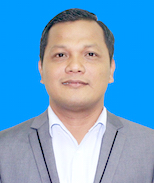 Tony Hell
Tony Hell
Secretary General
Tonle Sap Authority
Ministry of Water Resources and Meteorology, Cambodia
Public Policy Program (’03)
Please tell us about your career path so far. What is your area of specialization and how did you come to work in this area?
I began setting my goals and objectives for life after I completed my studies at high school when I decided I wanted to become a development policy maker. I wished to use and implement my understanding and general knowledge of management and development aspects, particularly in the socio-economic sector, in public administration reform policies in Cambodia after the first national elections in 1993.
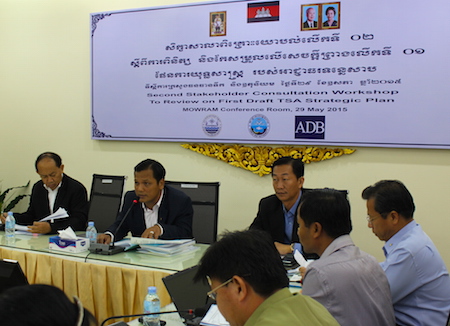
Stakeholder consultation workshop to review the Tonle Sap Authority Strategy Plan
I completed my Bachelor of Economic Analysis at the Faculty of Law and Economic Science in Cambodia in 1998. While my first job was in the private sector I spent only one year there because I was unsatisfied because I did not have enough time to do research and extend my knowledge on environmental development and management policy. In the end of 1999 I decided to change to the public sector and moved to the Ministry of Planning where I was being made responsible for preparing the National Socio-Economic Development Plan – now renamed to National Strategic Development Plan (NSDP) – and the public investment program. I worked hard and tried to understand the national policy in the public sector, especially the public administration reforms aiming to achieve good governance and maintain macroeconomic growth.
You are currently working as Secretary General of the Tonle Sap Authority under the Ministry of Water Resources and Meteorology. What are your main responsibilities and duties?
After finishing my Master of Public Policy degree at GRIPS in 2003, I continued working at the Ministry of Planning until 2007 when I was promoted and moved to a new work place at the Tonle Sap Basin Authority (TSBA) under Council of Ministers. I was appointed as Director of the Planning and Cooperation Department in charge of cooperation and preparing the strategic planning and policy for management, conservation and development of the Tonle Sap Basin region.
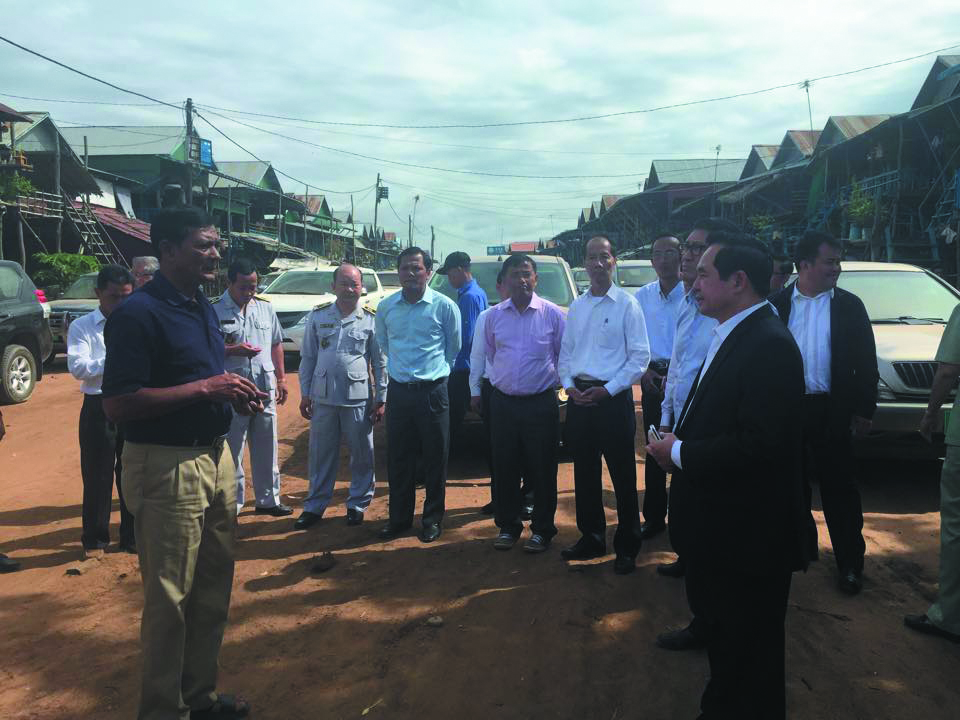
Study research visit on eco-tourism and Tonle Sap floating village
In 2009, as part of a broader public administration reform, the name of Tonle Sap Basin Authority changed into the Tonle Sap Authority and was brought under the Ministry of Water Resources and Meteorology. I was promoted to Secretary General of the Tonle Sap Authority in 2013.
My main responsibilities and duties are overseeing the daily work, and generally managing the coordination, communication and cooperation with the various ministries, institutions, local authorities, national and international organizations, NGOs, and civil society to ensure the sustainable management, conservation, and development of the Tonle Sap area.
In your current capacity, what do you see as the main opportunities and challenges for Cambodia over the course of the next five to ten years?
Through learning by doing, I am beginning to understand what are the main opportunities for Cambodia over the next decade or so. Cambodia’s economic growth has been one of the fastest among Asia’s developing economies in recent years driven by vibrant garment exports, real estate, and construction activity. Looking ahead, further regional integration with the ASEAN countries and Asia Pacific countries provides opportunities to expand exports, and further integrate into global supply chains and to diversify and boost development in many sectors including security, culture and tourism. Even though the next five to ten years will provide many development opportunities, Cambodia will still face some challenging issues such as the growing development gap between rural and urban areas, political conflicts as a result of the ongoing regional border disputes, and climate change caused by exploitation of natural resources.
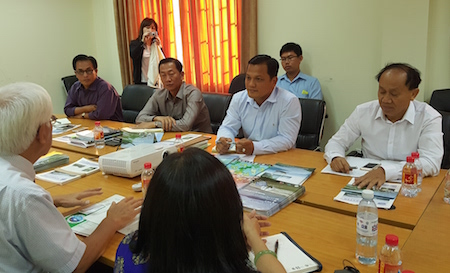
Sharing experiences with a Japanese delegation of the International Lake Environment Committee Foundation on Integrated Lake Basin Management (ILBM)
What are some of the biggest challenges you face in your work? And what have been the most interesting or rewarding aspects of your career thus far?
In terms of work processes, no matter what challenges or problems we face, I must find a solution. From my experience, I would like to separate two aspects in the working process: the technical aspect and the political aspect. Actually, the biggest challenges in my work relate to the political aspects that usually require high-level decision-making.
What led you to GRIPS? What was the most important thing you learned while here, and how has your experience at GRIPS prepared you for future endeavours?
As I mentioned in the previous questions, I was awarded the Japan-Asian Development Bank – Japan Scholarship to study at GRIPS in 2002 when I was working for the Ministry of Planning. Through the formal scholarship procedures in the Ministry of Planning, I was nominated as a candidate to apply for this scholarship. The most important thing I got out of my study at GRIPS in 2002/03 is that I could learn about Japanese culture and the various aspects that have made Japan a leader in Asia and beyond. Actually, I have been implementing the knowledge and skills acquired during my studies at GRIPS into the work process. I am also trying as much as possible to share my knowledge and experience with other people in Cambodia through consultative platforms with government leaders, relevant ministries and development partner’s cooperation.
How do you maintain a balance between your work and the rest of your life? And what is your favorite thing to do when you are not working?
I do not believe in a strict work/life separation. I am hoping to utilize the knowledge I gained through my work experience in the rest of my life by offering assistance in dealing with social issues through local authorities and human resources institutes and universities. I am also planning to collect and produce some interesting and useful books and magazines for young people that will help the next generation to understand the national development and management policy context, including general knowledge relating to the balance of economic development and management of natural resources.
What are some of your fondest memories of your time spent at GRIPS? And what do you miss about Japan?
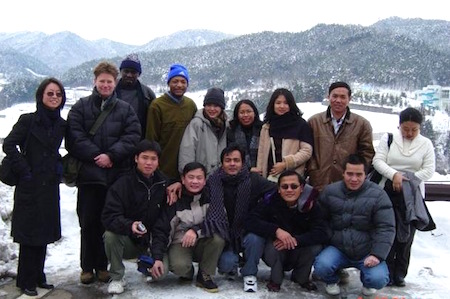
GRIPS field trip to Hida-Takayama and Shirakawa-go
I have many fond memories of my time spent at GRIPS that I will never forget. I spent a lot of time studying and doing research through consultations with GRIPS professors, classmates and Japanese students and I particularly value the exchange experience, and the Japanese knowledge and social culture. I actually miss the fairly long commute from our dormitory to GRIPS (then located in Shinjuku) since it enabled me to experience the real Japanese life and culture. I also miss the spring term with the most beautiful sakura, the Japanese cherry blossom.
If you could give one piece of advice to anyone considering studying at GRIPS what would it be?
I have already introduced GRIPS to many young Cambodians working in the public sector in mid-level positions and advised them to extend their knowledge in public policy and management at GRIPS. Many of them are strongly interested to apply for a GRIPS program and scholarship.
How would you like to maintain involved with the School? What do you expect from GRIPS as an alumnus?
Even though I completed my master’s degree at GRIPS in 2003, I am still communicating with fellow GRIPS alumni who are working for the government sector in line ministries and agencies in their countries. In particular, we have been keeping in touch through Messenger and Facebook. The GRIPS alumni network is an invaluable communication network through which we can maintain old friendships, make new ones, and share professional and other information among each other.
Do you have any suggestions on how to further utilize the GRIPS alumni network?
I am hoping the network will be further extended and strengthened among all members in all respective countries where GRIPS has alumni so that we can broadly share relevant information and knowledge, including research findings, experiences with global development policies etc.





